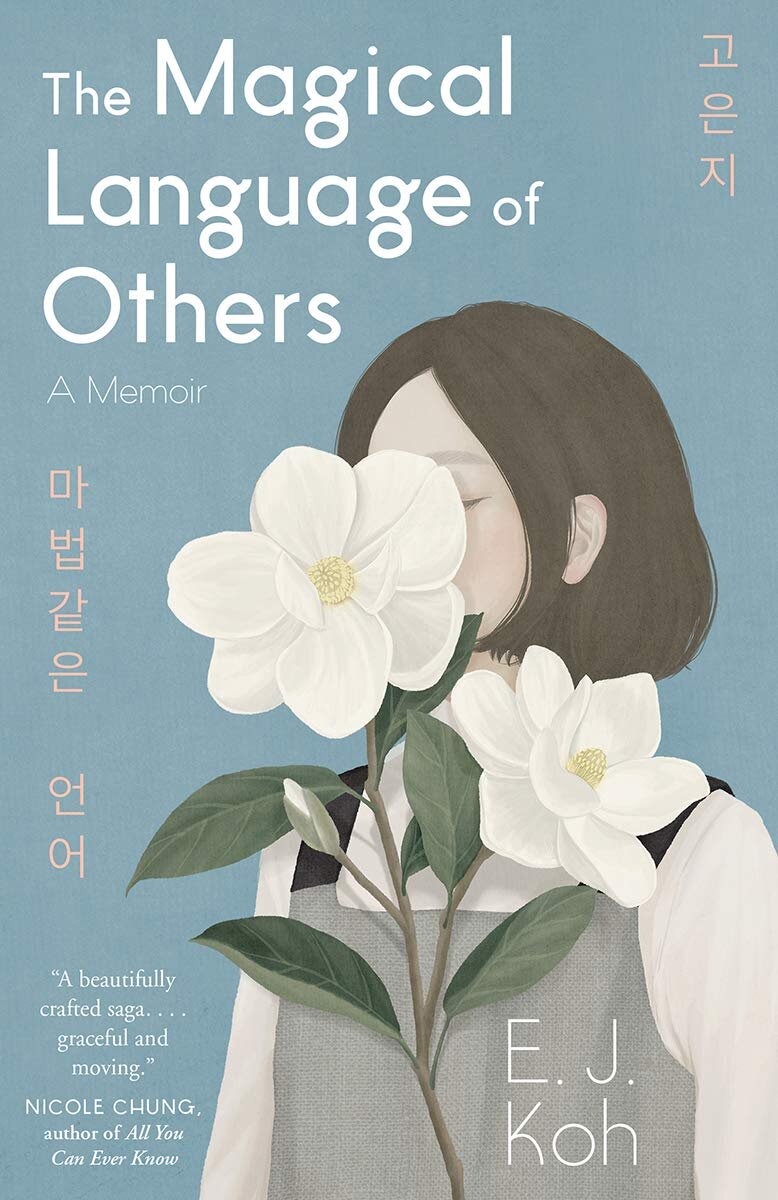The Magical Language of Others by E.J. Koh
A review of The Magical Language of Others by E.J. Koh
“The present is the revenge of the past.”
The Magical Language of Others by E.J. Koh (2020). Published by Tin House Books.
I’ve been on a kick of Asian-American writers later, especially after receiving a scholarship from Kundiman to attend a workshop on ghazals, so when I found this book for download, I knew I had to get it. This is E.J. Koh’s memoir about her relationship with her mother, who is very Korean. Koh was born in the United States, and, in a sense, is more American than Korean.
I didn’t know anything about E.J. Koh before this, and this memoir was an interesting read, full of surprises I didn’t expect. There are some trigger warnings that would’ve been nice (CW: eating disorders are mentioned, as well as her grandmother essentially killed herself. There’s also details about her grandmother slitting her wrists and multiple different attempts at suicide. That I was not prepared for at all), but it thankfully didn't impact me too much.
Overall, I liked this memoir! Let’s dig deep into my thoughts about it.
Book Blurb
The Magical Language of Others is a powerful and aching love story in letters, from mother to daughter. After living in America for over a decade, Eun Ji Koh’s parents return to South Korea for work, leaving fifteen-year-old Eun Ji and her brother behind in California. Overnight, Eun Ji finds herself abandoned and adrift in a world made strange by her mother’s absence. Her mother writes letters, in Korean, over the years seeking forgiveness and love—letters Eun Ji cannot fully understand until she finds them years later hidden in a box.
As Eun Ji translates the letters, she looks to history—her grandmother Jun’s years as a lovesick wife in Daejeon, the horrors her grandmother Kumiko witnessed during the Jeju Island Massacre—and to poetry, as well as her own lived experience to answer questions inside all of us. Where do the stories of our mothers and grandmothers end and ours begin? How do we find words—in Korean, Japanese, English, or any language—to articulate the profound ways that distance can shape love? Eun Ji Koh fearlessly grapples with forgiveness, reconciliation, legacy, and intergenerational trauma, arriving at insights that are essential reading for anyone who has ever had to balance love, longing, heartbreak, and joy.
The Magical Language of Others weaves a profound tale of hard-won selfhood and our deep bonds to family, place, and language, introducing—in Eun Ji Koh—a singular, incandescent voice.
Overall Thoughts
When Eun Ji (E.J.) is a teenage girl, at fourteen years old, her father accepts a job offer to go back to Seoul and make good money. Her mother and her father leave her alone with her brother, and they seem to live in this alternate reality. The letters Eunji’s mother sends her from Korea show a connection between these two worlds, in a scrappy mix of Korean and English. The actual letters are photocopied into the memoir, which was an interesting touch that I appreciated, because it adds an intimate touch to the memoir, one that the hybrid artist in me enjoys.
I found this focus on the women in her family to also be a nice touch. We get insight into her grandmother, who starved herself to death at forty years old, but then we go deeper into what she had witnessed during her lifetime. The history of Korea, especially in recent times, is completely and utterly traumatic, and we visit that in this memoir. One of her grandmothers, Kumiko, was a witness to the horrific Jeju Massacre in the 1940s, which was one of the beginning sparks of the Korean War.
I also found it interesting that Eunji went to Tokyo and learned Japanese, dating a Korean man who abandoned his roots for Japanese ones. The Korean students she’s studying with automatically assumed she was Japanese due to her commitment to the language as well as her last name, which was romanized to resemble a Japanese name more, rather than the usual Korean translation of Go for this particular last name. It weaves in this touch of the colonialist hold Japan had on Korea at one point, especially considering her grandmother’s witness to what happened in Jeju. At that time, 10% of Jeju’s population had been massacred by the US Army and the Korean government after an uprising led by communist sympathizers. This is considered to be a catalyst and beginning to the Korean War.
While this is a sad coming of age story, it shows the parallels throughout history, especially in families. Koh sets up to see how her mother’s mother’s story is almost an exact mirroring of situations. Unhappy with her cheating husband, Koh’s grandmother flees to Seoul, where she has her own apartment and seems to be much happier with her life. Then Koh’s mother begged her to come home, and, eventually, she relented and came back to Daejeon. That led to her death. She was so miserable she starved herself to death, thus continuing and deepening the trauma in Koh’s family. Soon after, her husband, too, got into a freakish accident by tumbling off of a cliff with his car.
This is a very poetic memoir, a nod to Koh’s career as a poet. However, I found the memoir to be a bit disjointed at times, only tethered together by the letters and overarching themes. But, perhaps, that’s an accurate representation of life. It’s a bit unique memoir, compared to others I’ve read, and it wasn’t difficult to read at all.
I think if you’re interesting in heartbreaking coming of age stories connecting generational trauma, this is the book for you. I personally was interested in digging deeper into the family history, but I’m a historian-anthropology person, so I’m a bit biased in that aspect.
